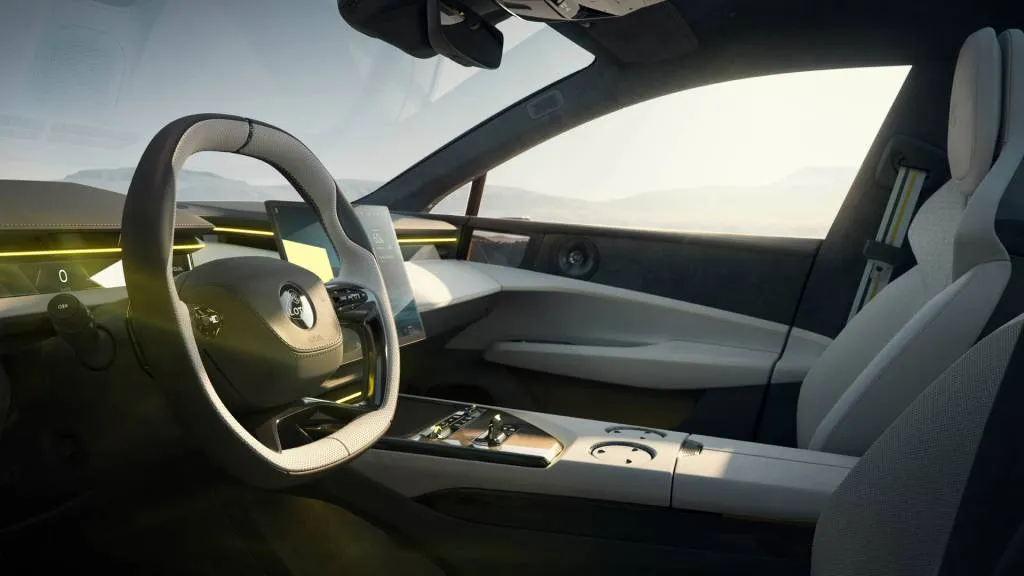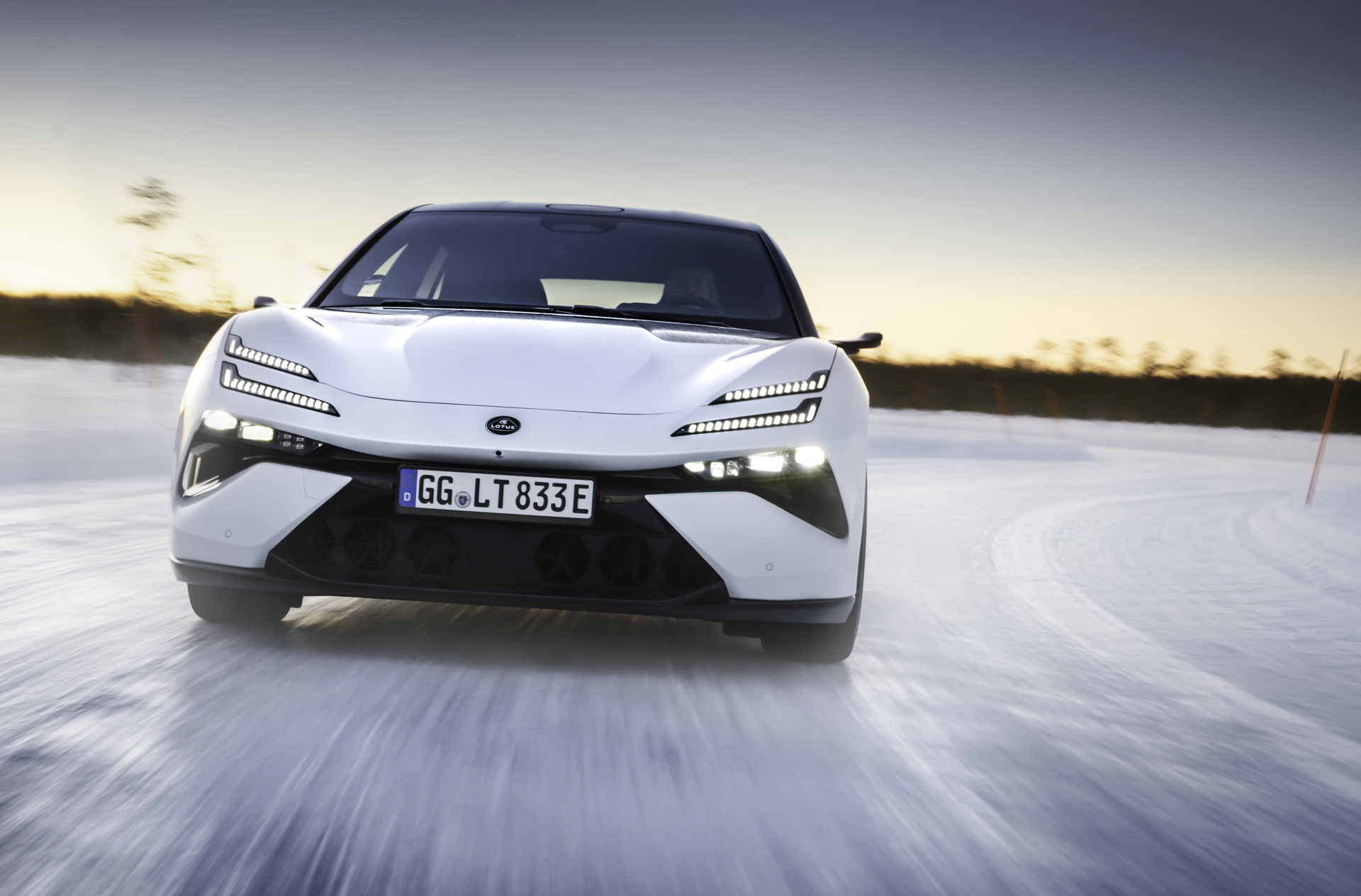Lotus last fall revealed its first sedan since the Carlton of the early 1990s in the form of the Emeya electric vehicle.
It’s due to enter production later this year at a plant in Wuhan, China, and Lotus last week announced it has signed off on the car’s development.
The gestation period lasted more than three years. It saw prototypes travel across 15 countries and two continents, and to famous racetracks including the Nürburgring. The cars also tested in extreme conditions, including temperatures ranging from as as low as -40 degrees F to as high as 104 degrees F.
Even in such harsh conditions, the prototypes not only had to maintain driving performance, but their battery’s charging system and thermal management system were also put to the test.

Lotus Emeya
The tests also resulted in some nuanced changes made to the car. For example, a Snow mode was developed for the head-up display, which turns the display blue to help the driver to see information more easily against a white background.
The Emeya is coming with a 102-kwh battery and up to 905 hp, making it a potential rival to cars like the Porsche Taycan and Tesla Model S Plaid. While Lotus has confirmed the related Eletre SUV will go on sale in the U.S. in 2024, the automaker hasn’t said whether the Emeya will reach local showrooms. However, the car debuted last fall in New York City, hinting strongly at the possibility.
Lotus is saving full details on the Emeya until closer to the market launch. However, the automaker has given some performance estimates, including a 0-62 mph time of 2.8 seconds and a top speed of 159 mph. The range will be similar to what’s delivered by the Eletre, Lotus said. The SUV with a bigger 112-kwh battery is estimated at up to 373 miles using the WLTP test cycle used overseas, a figure that will likely be closer to 300 miles when using the stricter EPA test cycle.
